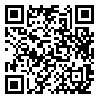BibTeX | RIS | EndNote | Medlars | ProCite | Reference Manager | RefWorks
Send citation to:
URL: http://jdn.zbmu.ac.ir/article-1-71-en.html
Introduction : Despite the progress in the diagnosis and treatment of diabetes, metabolic control in diabetic patients is still insufficient. Poor metabolic control may be due to failure in diabetes self-care by patients and inadequate intervention strategies by health care providers. Barriers to self-care training contribute to inefficient self-management by diabetic patients. In fact, an understanding of these barriers can promote self-care in patients. Therefore, the current study aimed to determine barriers to self-care training in diabetic patients from the viewpoints of nurses and patients.
Methodology : This descriptive, cross-sectional study was conducted in 5 hospitals affiliated to Iran University of Medical Sciences in Tehran, Iran. Overall, 48 diabetic patients and 42 nurses working at the departments of endocrinology and diabetes clinics were selected via convenience sampling. The subjects completed the researcher-made questionnaires, and the collected data were analyzed by SPSS version 15 and descriptive statistical tests.
Results: The results showed that environmental (mean=15.85) and management (mean=10.16) barriers were the most important factors from the viewpoints of nurses and patients, respectively. Also, the findings showed that insufficient access of nurses to updated scientific sources related to diabetes (e.g., books, journals, and articles) at the department of endocrinology, lack of a diabetes training center at the hospital, nursing shortage (for answering patients’ questions), nurses’ work overload, and insufficient time for providing information were the most important barriers from the patients’ perspective.
Conclusion: As the results indicated, health care authorities and administrators at nursing faculties should update the available scientific sources, hold training courses for nurses, and specialize nurses in diabetes self-care in order to provide self-care training for diabetic patients and overcome barriers to diabetes self-care.
Received: 2014/12/29 | Accepted: 2014/12/29 | Published: 2014/12/29
| Rights and permissions | |
 |
This work is licensed under a Creative Commons Attribution-NonCommercial 4.0 International License. |




